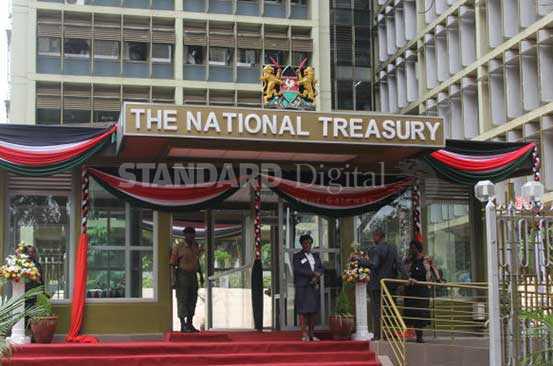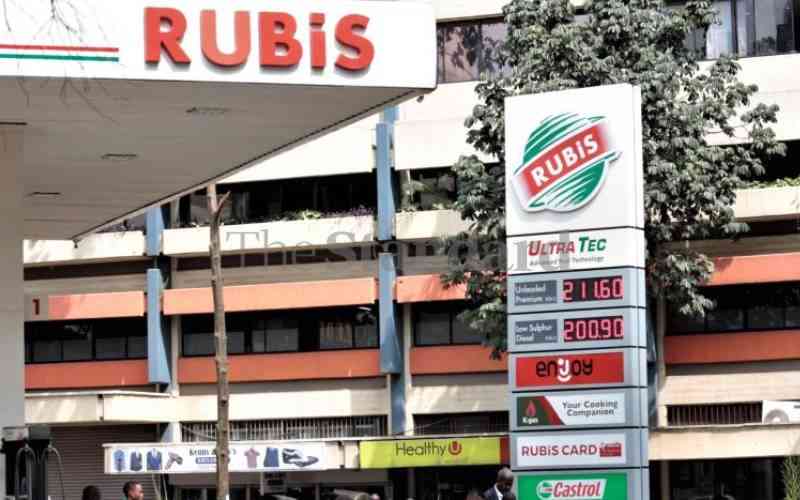
Thousands of jobs are at risk as the effects of the cash crunch in Government extend to the private sector forcing companies to tighten their belts.
According to private sector lobby group, Kenya Private Sector Alliance (KEPSA), contractors and suppliers have not been paid for services and goods to government for more than six months. Now, the private sector is cautioning that continued lack of spending by Government is directly hurting local companies, which are in turn being forced to cut back their spending.
“Demand is completely depressed and everybody is sitting on stocks because nobody is ready to sell their goods on credit or extend their credit past the limits they have already done,” explained KEPSA chairman Polycarp Igathe.
With Kenya’s recurrent expenditure estimated at 50 per cent of the country’s national budget each year, the State is the largest consumer of goods and services produced locally.
Mr Igathe, who is also the CEO of oil marketer Vivo Energy, said all sectors of the private sector are reeling from the Government’s spending cuts.
“The Government needs to start paying businesses for the services and products they have supplied and this will ease the tension that is in the system,” he explained.
“In the energy sector, for example, we used to pump seven million litres of fuel each day but since the cash crunch we are now doing five million litres,” he said.
The 28 per cent fall in sales, Mr Igathe, said would directly lead to cost cutting measures putting jobs and significant investments at risk. “You are sending the wrong message to private sector when you withhold money owed to businesses for over 180 days and this looks like we are in a short term recession and we need to sort it out.”
National Treasury Cabinet Secretary Henry Rotich on Thursday admitted to Parliament that the Government was experiencing a cash crunch on account of depressed revenue collections and corrective measures to strengthen the shilling.
Mr Rotich assured Parliament that the Treasury and Central Bank of Kenya (CBK) had taken prompt measures to strengthen Kenya’s currency against the US dollar and that the high interest rates and liquidity issues were only temporary.
“The first quarter of each year is usually very slow as revenues usually peak towards the end of the financial year,” explained Mr Rotich. “This time the issues of the first quarter were compounded by the raising of the lending rates as a means of strengthening of the shilling.”
Rotich further told the house that the situation had been overly exaggerated and that the CBK and Treasury had the situation under control.
In the past two weeks, there has been outcry from Members of Parliament over delayed disbursement of funds. Kenya Power disconnected electricity supply to Parliament Buildings over Sh10 million in unpaid bills. President Uhuru Kenyatta’s chief of staff Joseph Kinyua had to intervene to have electricity restored.
Treasury has delayed to disburse money to counties, the Higher Education Loans Board and several State corporations, stoking fears that the State was running on empty. The Treasury has asked counties to use overdrafts from commercial banks to pay staff and service the day-to-day operations.
Although Treasury says the State is not broke, what would possibly be the strongest pointer that all is not well, is that the Government has borrowed short term loans through treasury bills at rates higher than 21 per cent — as was the case in last week’s T-bills issue.
Treasury PS Dr Kamau Thugge revealed that an emergency decision was taken to borrow from commercial banks through a syndicated loan worth Sh77 billion from Standard Chartered, CFC Stanbic and Citi Bank. The last time Kenya borrowed cash through a syndicated loan was also to solve another crisis of settling another international court order.
 The Standard Group Plc is a multi-media organization with investments in media
platforms spanning newspaper print operations, television, radio broadcasting,
digital and online services. The Standard Group is recognized as a leading
multi-media house in Kenya with a key influence in matters of national and
international interest.
The Standard Group Plc is a multi-media organization with investments in media
platforms spanning newspaper print operations, television, radio broadcasting,
digital and online services. The Standard Group is recognized as a leading
multi-media house in Kenya with a key influence in matters of national and
international interest.
 The Standard Group Plc is a multi-media organization with investments in media
platforms spanning newspaper print operations, television, radio broadcasting,
digital and online services. The Standard Group is recognized as a leading
multi-media house in Kenya with a key influence in matters of national and
international interest.
The Standard Group Plc is a multi-media organization with investments in media
platforms spanning newspaper print operations, television, radio broadcasting,
digital and online services. The Standard Group is recognized as a leading
multi-media house in Kenya with a key influence in matters of national and
international interest.










